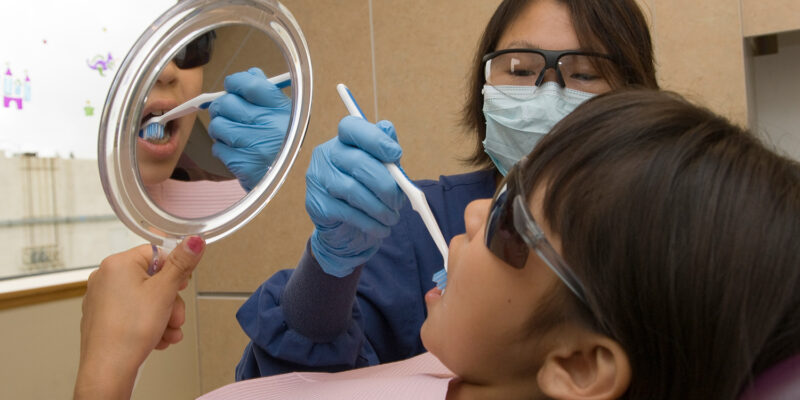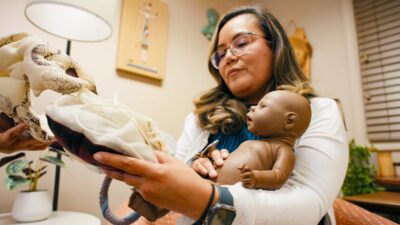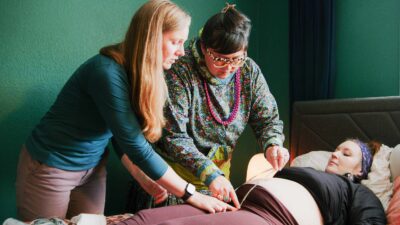In Brief
“Dental Therapists in the United States” is a new study published in the journal Medical Care that examines the drivers and outcomes of the implementation of dental therapy practices in the U.S. since 2005. Dental therapists provide both preventive (health education, prophylaxis, X-rays) and routine restorative (filling cavities, placing temporary crowns and extracting teeth) care in 12 states, increasing access to routine dental care for underserved populations.
Using a health equity lens, the researchers found that dental therapists increase access to culturally appropriate and community-centered oral health care in disadvantaged communities, serving Tribal nations, people of color, people of lower incomes and people with disabilities. However, dental therapy is dependent on a large network of institutions, legislators, advocates and processes to be successful. Four states have authorized the practice of dental therapy long enough for improvements in care to be thoroughly documented: Alaska, Minnesota, Oregon and Washington.
“For Want of a Dentist: The Rise of the Dental Therapy Movement in Tribal Nations and the U.S., Lessons from the W.K. Kellogg Foundation”
Why This Matters
A desire to promote oral health equity in Alaska Native communities kickstarted the dental therapy movement in the U.S. Many Tribal communities experience trauma by the dental profession at large. Because of this and historical oppression, they were hesitant to continue to seek out care by Westernized oral health practitioners. This often remains true for members of other historically disadvantaged groups in the U.S. as well.
By implementing dental therapy, local communities can increase engagement with and access to health providers who are able to both treat and prevent dental diseases and conditions that often have significant overall health impacts while also furthering stigma based on stereotypes of poverty, race, disability, etc.
The Opportunity
Dental therapists create jobs, reach underserved communities, provide cost-effective care, increase access through innovation and make a difference.
Caswell Evans, DDS, MPH, associate dean emeritus of Prevention and Public Health Sciences at the University of Illinois at Chicago College of Dentistry and a founding member of the National Coalition of Dentists for Health Equity, believes their collective efforts in research and practice are already having significant impact in communities.
“The authorization of dental therapists is a proven way to make a meaningful difference to the millions of Americans currently without access to dental disease prevention or treatment services,” Evans says. “The movement is spreading rapidly across the country and the growing body of evidence clearly demonstrates that it’s working. Because of dental therapists, public, private and nonprofit practices are better equipped to provide appropriate care to those in need.”
Additional W.K. Kellogg Foundation resources to consider on this topic:
Dental Therapy Resource Guide – Our one-stop shop for everything you need to know about dental therapy, including an extensive library of articles, documents, infographics, interactive tools, interviews, podcasts, social media assets and videos.
Dental Therapy Toolkit – Dental Therapy Matters – Designed for the use of advocates and partners, this toolkit highlights how dental therapists promote economic development and increase access to care for communities across the U.S.
Dental therapists expand access to care – With WKKF support, dental therapists have been successfully working in the United States as part of the dental care team for more than 15 years. Here’s a series featuring several practicing, community dental therapists and share how they are creating jobs, reaching underserved communities, providing cost-effective care, increasing access and making a difference.








Comments